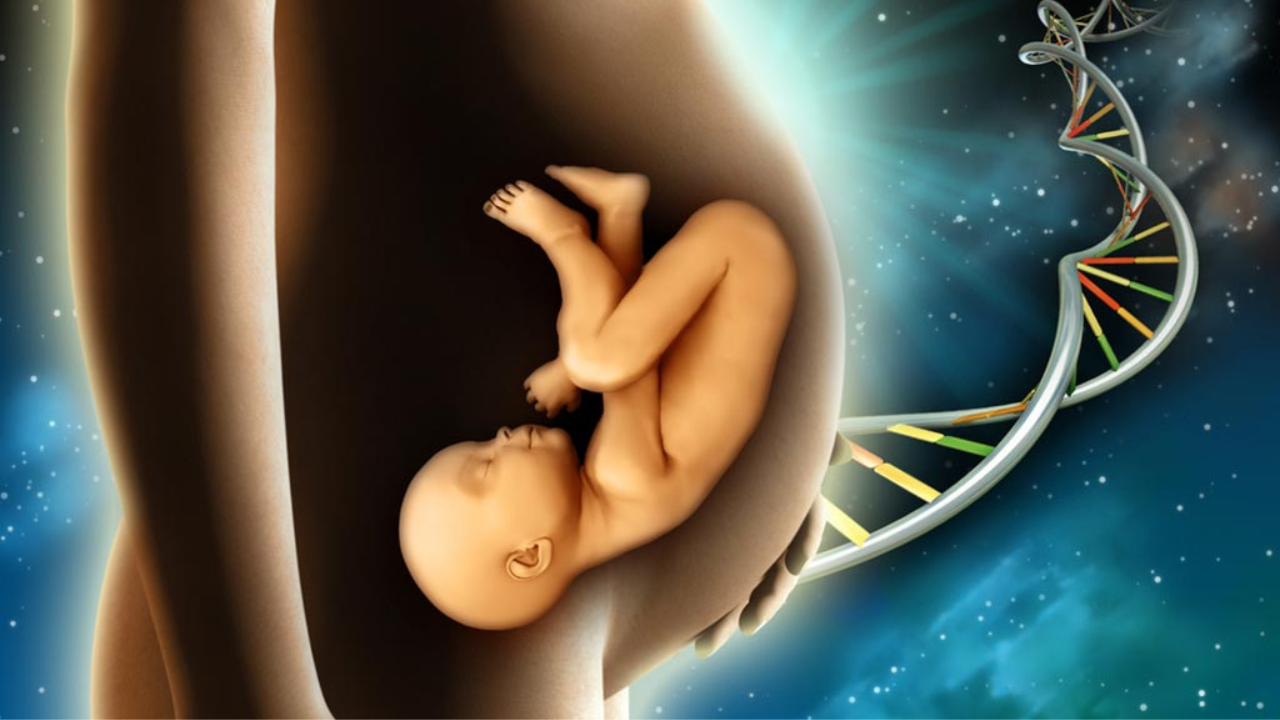Understanding The 3 Kinds Karma: History and Influence on Our Lives
Ashley Michaud • July 18, 2024
History of Karma
The concept of karma originates from ancient Indian religions, primarily Hinduism, Buddhism, and Jainism. The Sanskrit word "karma" means "action" or "deed," and the idea encompasses not just the actions themselves but also their consequences. In Hinduism, karma is closely linked to the cycle of rebirth (samsara) and the pursuit of liberation (moksha). Buddhism and Jainism also embrace the concept, emphasizing moral causation and the ethical dimension of karma.
Types of Karma
Karma can be categorized into three main types:
- Sanchita Karma: This is the accumulated karma from all past lives. It represents the total of our actions and their residual effects that have yet to bear fruit.
- Prarabdha Karma: This is the portion of sanchita karma that is currently influencing our present life. It is often considered the "fate" we are born with, shaping our circumstances and challenges.
- Agami Karma: These are the actions we are currently performing, which will influence our future lives. It includes the new karma we create in our current existence.
Laws and Principles of Karma
Several key principles underpin the concept of karma:
- The Law of Cause and Effect: Every action has a corresponding reaction. Good deeds lead to positive outcomes, while harmful actions result in negative consequences.
- The Principle of Growth: Challenges and difficulties are opportunities for spiritual growth and learning.
- The Principle of Responsibility: We are accountable for our actions. Blaming others or external circumstances diverts us from our path of self-improvement.
- The Principle of Rebirth: Karma transcends individual lifetimes, influencing our reincarnations and the circumstances we are born into.
Family Karma
Family karma refers to the patterns and influences passed down through generations. This includes not only physical and genetic traits but also behavioral tendencies, emotional patterns, and even unresolved issues. By understanding and addressing family karma, individuals can break negative cycles and cultivate positive legacies for future generations.
Karma in Daily Life
- As Individuals: Understanding karma encourages mindfulness in our thoughts, words, and deeds. By recognizing that our current actions shape our future experiences, we are motivated to live ethically and compassionately.
- As Children: Children are often seen as inheriting karma from their parents, yet they also bring their own karmic influences into the world. Teaching children about karma can instill a sense of responsibility and empathy, helping them understand the importance of their actions.
- As Parents: Parents play a pivotal role in shaping their children's karma. By modeling positive behavior, fostering an environment of love and respect, and addressing their own karmic challenges, parents can create a nurturing space for their children’s growth.
Affirmations to Understand and Release Karmic Ties
- I acknowledge and embrace the lessons my past actions have taught me.
- I release any negative patterns inherited from my family, allowing healing and growth.
- I forgive myself and others for past mistakes, understanding that each experience contributes to my spiritual journey.
- I am mindful of my thoughts, words, and actions, knowing they shape my future.
- I choose to create positive karma through compassion, kindness, and love.
- I am open to the guidance of the universe, trusting in the flow of karma to lead me to my highest good.
- I honor the interconnectedness of all beings and strive to act in ways that uplift and support others.
- I release any fear of the future, trusting that my positive actions will create a harmonious path ahead.
By integrating these principles and affirmations into daily life, we can better understand and navigate the complex web of karma. Embracing the idea of karma encourages personal growth, ethical living, and a deeper connection to the world around us.
Are you ready to understand and transform the karmic patterns influencing your life? Whether you're seeking personal growth, looking to break free from family karma, or simply curious about the deeper principles of karma, I'm here to guide you on this journey. Contact me today for personalized coaching and embark on a path of healing and empowerment.
Let's dive deeper together! Share your thoughts and experiences in the comments below, and let's start a conversation about how karma has shaped your life. Your insights and stories could inspire others on their own paths.
Resources for Additional Reading and Discovery
Books:
“Retire Your Family Karma: Decode Your Family Pattern and Find Your Soul Path” by Ashok Bedi and Boris Matthews
"The Law of Karma: A Progression of Lives" by Bruce Goldberg
"Karma: What It Is, What It Isn't, Why It Matters" by Traleg Kyabgon
"The Little Book of Karma" by Richard Craze
Articles and Online Resources:
Understanding Karma: A Brief Introduction
The Role of Karma in Buddhism
Hinduism Today: Karma and Reincarnation
Podcasts and Videos:
"Karma and the Laws of Karma" by Sadhguru on YouTube
"Understanding Karma and Reincarnation" on the Spiritual Awakening Podcast
"The Science of Karma" TED Talk by Vishen Lakhiani
Workshops and Courses:
Online courses on platforms like Coursera, Udemy, and Gaia focusing on karma and spiritual growth.
Local spiritual centers and retreat centers offering workshops on karma and personal development.
Guided Meditations and Practices:
Meditation apps like Insight Timer and Calm featuring sessions on karma and releasing negative patterns.
Books and resources on mindfulness and meditation practices to cultivate positive karma.

Unlock the wisdom of ancient shamanic teachings to break free from emotional struggles and reclaim your inner peace. In this in-depth guide, explore six powerful principles that can transform your mindset, release past pain, and align you with nature’s healing energy. Discover actionable steps, rituals, and exercises to integrate these teachings into your daily life with joy and clarity. Start your journey to emotional freedom today!

Discover the profound role algae and fungi have played in shaping life on Earth, sustaining ecosystems, and enhancing human health. From nutrition and medicine to environmental restoration and consciousness expansion, these ancient organisms continue to offer us powerful benefits. Learn how to honor, use, and integrate algae and fungi into your daily life for better health, sustainability, and spiritual connection.

Psychedelics open the door to profound healing, but true transformation happens through integration. This article explores the importance of grounding after a psychedelic journey, the Ayurvedic layers of being, and practical steps to support your mind, body, and spirit. Discover why integration is your sacred responsibility and how working with an integration coach can help you embody lasting change.

Sacred tobacco, known as Rapé or Mapacho, has been used for centuries by indigenous tribes for healing, prayer, and spiritual connection. Unlike commercial tobacco, which is processed for addiction, this medicine is prepared with reverence and intention. Learn about its benefits, ceremonial use, right relationship, and how to integrate it into your spiritual practice.

Embrace the Sacred Journey of Gentle Birth: A Guide to Pain-Free, Ecstatic, and Empowering Birth Experiences
This post explores the transformative potential of gentle birth, including pain-free, ecstatic, orgasmic, freebirth, and water birth. By tapping into the wisdom of hypnobirthing, Ina May Gaskin’s techniques, and powerful affirmations, you’ll discover how to create a peaceful, empowering environment for your birth. We walk you through the stages of labor, offering a step-by-step guide to help you prepare mentally, emotionally, and physically for a calm and beautiful birth experience. Learn how to harness your body’s wisdom, embrace the sensations of labor with trust, and welcome your baby into the world in a way that is sacred and transformative.

Explore the fascinating world of DMT in this comprehensive article, where we delve into its history, effects, benefits, and the role it plays in psychedelic healing. Whether you're curious about DMT's spiritual significance, its therapeutic potential, or its powerful role in consciousness expansion, this article provides insightful information backed by scientific research and personal experiences. Learn how DMT may help in unlocking deeper states of awareness and healing, and how it fits within the broader context of natural medicine and psychedelic integration.

Discover the ultimate guide to holistic and natural diapering! Learn the history of diapering, explore eco-friendly options like cloth diapers and elimination communication, and find DIY recipes for baby wipes, rash creams, and powders. Perfect for moms looking to reduce waste, save money, and keep baby’s skin naturally healthy. Written by a second-time mom with firsthand experience, this guide is packed with tips, tricks, and inspiration for embracing sustainable diapering 🌿💚

The postpartum period is a sacred and transformative time, offering a chance to bond deeply with your baby, restore your body, and honor your spiritual journey into motherhood. From placenta rituals and cord cutting to the importance of rest and breastfeeding, this comprehensive guide explores natural practices from around the world that promote healing, connection, and empowerment. Whether you’re a first-time mom or welcoming another child, discover meaningful rituals, cultural wisdom, and practical tips to nurture yourself and your growing family. Embrace the fourth trimester with love, self-care, and support.

Finding out your baby is in a breech position late in pregnancy can be overwhelming, especially if you’re planning a home birth. But with a blend of natural techniques, trusted support, and an understanding of breech birth history, there’s hope and empowerment on this journey. 🧡
I recently faced this challenge at 35 weeks, leaving a routine visit with my midwife in tears as I learned about the medical interventions often recommended for breech positioning. But after speaking with my doula and researching natural approaches, I found a renewed sense of calm and purpose.
In this article, I share my story, a holistic guide on breech positioning, and insights into traditional methods that honor both mom and baby. From Spinning Babies techniques to affirmations and visualizations, I hope this piece brings clarity and comfort to anyone on a similar path. 🌿✨
🔗 Read more about navigating breech with confidence!

Discover the essentials of ethical and impactful psychedelic retreats in this comprehensive guide, covering key practices for retreat leaders and attendees alike. Learn about preparation, integration, and the importance of maintaining integrity in the world of plant medicine ceremonies, including mushroom, DMT, ayahuasca, iboga, and bufo retreats. With 20+ years of experience in psychedelic integration coaching, this article sheds light on the growing popularity—and challenges—facing these transformative experiences. Find guidance on due diligence, ethical considerations, and creating a truly healing, heart-centered journey that respects indigenous traditions and the sanctity of plant medicine.


